Education
Electrical and Electronic Engineering
Undergraduate Major5 Features
Daily encounters with advancements
that draw the world closer to a new era
-
1
Valuing Progress by the Millimeter, Advancements by the Second
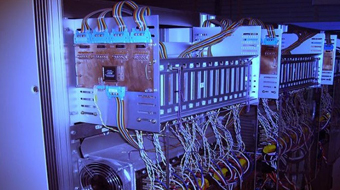
The changes that occur in our lives from day to day are so subtle that we hardly ever notice them. This, however, does not mean that our lives remain static. Look back ten years and you will find that things have changed dramatically since then.
In the same way, developments in fields such as nanotechnology, IT, information and communications, and alternative energy are a slow and gradual affair. The arduous effort to progress by the millimeter and make advancements by the second might seem irrelevant. However, the accretion of these efforts culminates in a large enough force that changes the world.
The Department of Electrical and Electronic Engineering is looking for students who are willing to utilize their creativity and imagination to make these small but significant progress and advancements that will revolutionize society. -
2
Extensive Learning of Technologies
That Underlie Our Diverse and Advancing Society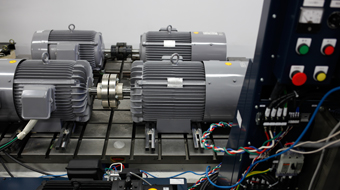
Electricity is integral to the modern world. Without electrical power and electrical signals to convey information, our society and industries would not function. Not only that, but electricity is also essential in various other areas, including culture, education, environment, and medicine, and this list will no doubt grow as electricity continues to make our lives richer and more pleasant.
Here at the Department of Electrical and Electronic Engineering, students are fostered to become individuals who take leadership roles in research, education, government agencies, and industries related to the discipline. -
3
Creativity Development Courses
that Teach the Joy of "Monozukuri"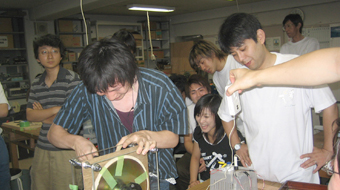
Another distinguishing feature of the department is its Creativity Development Courses. These practicums and experiment courses are intended to instill students with the monozukuri spirit — zest for technical innovation — and aim to foster creative researchers and engineers with strength of character.
In the Creative Experiments on Electrical and Electronic Engineering course, students get to compete in an annually held contest where they showcase their creative work. Students who gain the highest score get to attend a student workshop held by AOTULE (Asia-Oceania Top University League on Engineering). -
4
Laboratories Where the Future Is Shaped
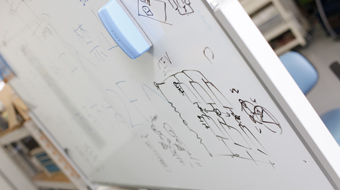
Learning would be a dull affair if all it involved were listening to instructions.
The real thrill of studying at university comes when individuals use their own initiatives to identify themes, search for solutions, and derive conclusions from their findings.
Laboratories are the perfect environment for this.
The Department of Electrical and Electronic Engineering is home to leading laboratories that are involved in rapidly advancing fields, such as nanotechnology, electronics, and communications technology. By joining these laboratories, students have the opportunity to shape the future well-being of society. -
5
Following in the Footsteps of Graduates
Flourishing in the Forefront of Society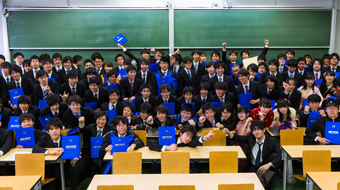
Around 90 percent of the bachelor's degree students advance to a graduate program. Upon graduation, students go on to pursue successful careers with leadership roles in a wide range of fields. Areas of employment include electric power, communications, information, electrical and electronics, computer, broadcasting, steel, machine, chemical, and service industries, as well as trading companies, universities, and government agencies.
